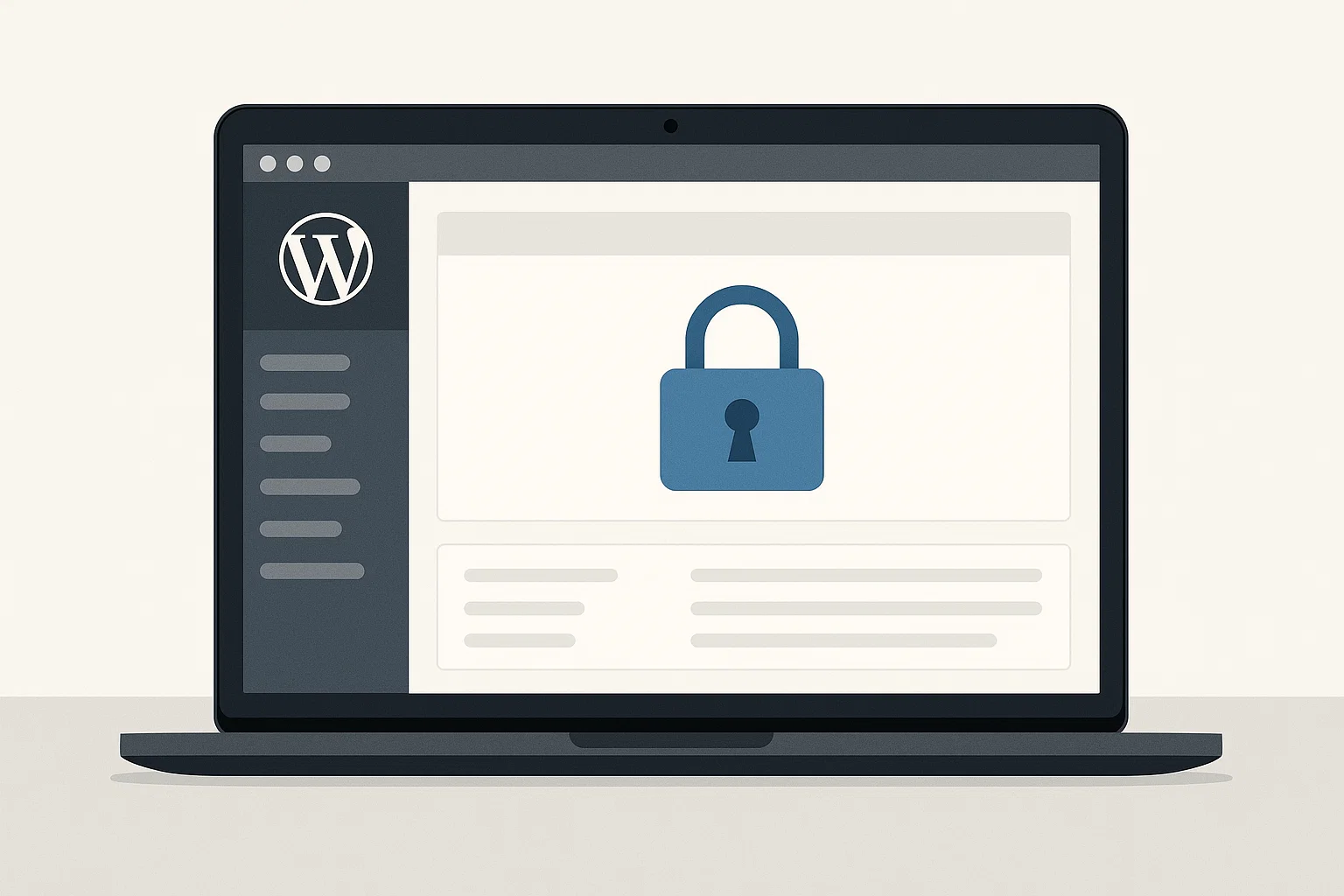
In this guide, I’ll walk you through the best WordPress website security tips that pro bloggers rely on. We’ll cover everything from plugins to hosting to everyday habits that keep your site hacker-proof. Don’t worry, I’ll keep it simple, practical, and easy to follow, even if you’re not a tech pro.
Why WordPress Security Matters More Than Ever
WordPress powers over 40% of websites worldwide. That massive popularity makes it a huge target for cybercriminals. Hackers don’t necessarily care about your little corner of the internet, they use automated bots that scan thousands of sites every minute, looking for weaknesses.
According to Wordfence’s annual report, there are millions of brute force login attempts on WordPress sites every day. That means someone, somewhere, is trying to guess your password right now. Even worse, outdated plugins and themes account for more than 50% of hacked websites.
So, if you think, “Why would anyone target my blog?”, the answer is: they don’t have to. Bots are constantly searching for the easiest entry points, and if your site is vulnerable, it’s fair game.
Best WordPress Website Security Tips for Pro Bloggers
Alright, let’s get into the actionable stuff. These aren’t just fancy “IT-guy” tricks, these are simple steps you can do today to secure your WordPress site.
Strengthen Your Login Security
Your login page is the front door to your blog. If you leave it wide open, hackers will waltz right in.
Use strong passwords: Mix uppercase, lowercase, numbers, and symbols. “mypassword123” won’t cut it.
Enable two-factor authentication (2FA): This adds an extra layer, so even if your password is leaked, hackers can’t get in.
Limit login attempts: Plugins like Limit Login Attempts Reloaded block IPs after too many failed logins.
Change the default login URL: Most bots target
yoursite.com/wp-admin. Changing it to something unique reduces brute force attempts.
Think of it like locking your house door and adding a peephole, you’re making it harder for strangers to break in.
Always Use SSL (HTTPS)
If your website still shows “Not Secure” in the browser, that’s a problem. SSL (Secure Socket Layer) encrypts data between your site and your visitors. This not only protects sensitive information but also builds trust.
Most hosting companies (like SiteGround, Hostinger, or Bluehost) offer free SSL certificates. Once enabled, make sure your entire site redirects to HTTPS. Google also favours HTTPS sites, so this boosts SEO too.
Keep WordPress Core, Themes, and Plugins Updated
Updates aren’t just about fancy new features, they patch security holes. Hackers love outdated software because it’s easier to exploit.
Always update WordPress core as soon as stable versions are released.
Keep your themes and plugins up to date.
Delete plugins you don’t use anymore. They’re just extra doors for hackers to test.
Pro tip: Use a staging site (many hosts offer this) to test updates safely before applying them to your live blog.
Use the Best WordPress Security Plugins
Plugins are your best friends when it comes to site protection. Here are the most popular options:
| Plugin | Best For | Notable Features |
|---|---|---|
| Wordfence | All-in-one security | Firewall, malware scan, login security |
| iThemes Security | Beginners | Easy setup, 30+ security measures |
| Sucuri Security | Pro bloggers | Cloud-based firewall, malware removal |
| All In One WP Security & Firewall | Free users | User-friendly, strong firewall |
Personally, I recommend Wordfence if you want a solid balance of power and usability. It blocks attacks in real time and emails you about suspicious activity.
Choose a Secure Hosting Provider
Your hosting is the foundation of your website. If your host is weak, no amount of plugins will save you.
Look for these hosting security features:
Built-in firewalls.
Regular malware scans.
Daily backups.
DDoS protection.
24/7 support.
Good options include SiteGround, Kinsta, and Hostinger. If your host still treats security as an afterthought, it might be time to move.
WordPress Security Best Practices Checklist
Here’s a quick security checklist you can bookmark:
Daily:
Check login activity.
Monitor unusual traffic spikes.
Weekly:
Update plugins, themes, and WordPress core.
Backup your website.
Monthly:
Scan for malware.
Review admin and user accounts.
Remove unused themes/plugins.
Backup Strategies You Can’t Ignore
A backup is like insurance, you hope you’ll never need it, but when disaster strikes, it saves your life.
Use backup plugins like UpdraftPlus or BlogVault.
Store backups on cloud services (Google Drive, Dropbox, Amazon S3).
Automate backups daily or weekly depending on your posting schedule.
Don’t just keep backups on your server, if your host gets hacked, your backups go with it.
Protect Against WordPress Security Vulnerabilities
The three most common attacks you’ll face are:
Brute Force Attacks: Bots trying endless password combos. (Fix: 2FA, limit login attempts).
SQL Injections: Hackers inserting malicious code into your database. (Fix: security plugins and updated software).
Malware Infections: Hidden scripts that steal data or redirect traffic. (Fix: firewalls, scans, and strong hosting).
Knowing what you’re up against makes you better prepared.
Why Some People Move Away from WordPress (Security Concerns)
You may have heard bloggers say, “I left WordPress because it’s not secure.” That’s not entirely true. WordPress itself is safe when updated, but poor site management makes it vulnerable.
People often:
Skip updates.
Install shady plugins.
Use weak hosting.
That’s like blaming car companies for accidents when the driver never checks brakes. If you maintain your site properly, WordPress is as safe as any other CMS.
So, Make Your Blog Hacker-Proof
Security isn’t a one-time job, it’s a habit. Hackers are always evolving, but so are security tools. By following the best practices we’ve covered, strong logins, SSL, updates, reliable hosting, and regular backups, you’ll be way ahead of most bloggers.
If your blog is your business, treat it like a business asset. Would you leave your shop unlocked at night? Exactly.
Stay consistent, keep things updated, and don’t wait for a disaster to act. Protect your work today, and you’ll thank yourself tomorrow.
And hey, if you ever need to rewrite or refresh content securely without losing SEO value, tools like Paraphrasing Tool can save you time and effort.

Alex WebPro, your guide to web mastery. Expert tips on WordPress, SEO, monetization, and the best in design trends and themes.